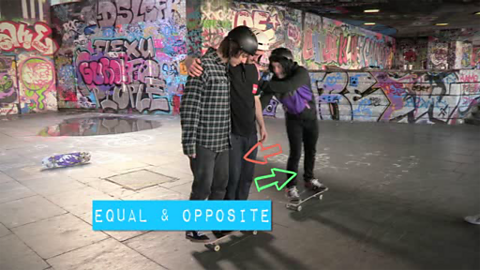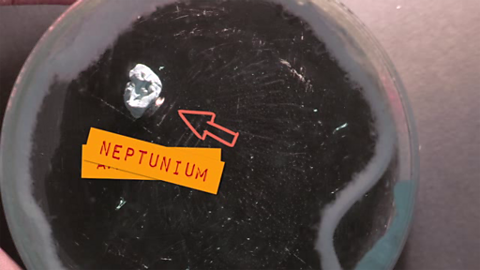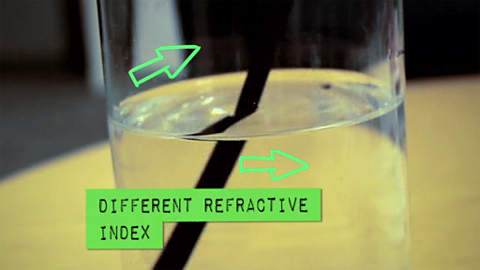Science presenter Jon Chase explains total internal reflection.
He demonstrates how total internal reflection can make a coin disappear inside a glass of water and bend a laser beam. The second demonstration is used as a model for fibre optics.
Teacher Notes
Your class could repeat the demonstration with the glass and the coin. Ask them to draw light ray diagrams to show what happens when they move their head higher or lower.
There are a variety of ray diagrams possible, depending on the position of the viewer and the amount of water in the beaker.
Students could also investigate total internal reflection using ray boxes and blocks of Perspex and glass, measuring the critical angle in each case.
Total internal reflection could also be demonstrated by the teacher using a laser beam shining through these blocks, or even through a rectangular block of gelatine.
Curriculum Notes
This short film will be relevant for teaching physics and science in general at KS3 and KS4 in England, Wales and Northern Ireland and National 4/5 in Scotland, and Cambridge IGCSE Physics
More from Physics Bites:
A demonstration of friction. video
Jon Chase explains friction.

Falling bodies. video
Jon Chase describes Aristotle’s and Galileo’s theories about falling bodies.

Newton's Third Law. video
Science presenter Jon Chase explains Newton’s third law.

Radioactive decay. video
Jon Chase explains radioactive decay.

Refraction of light. video
Jon Chase explains the refraction of light.
